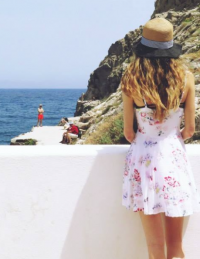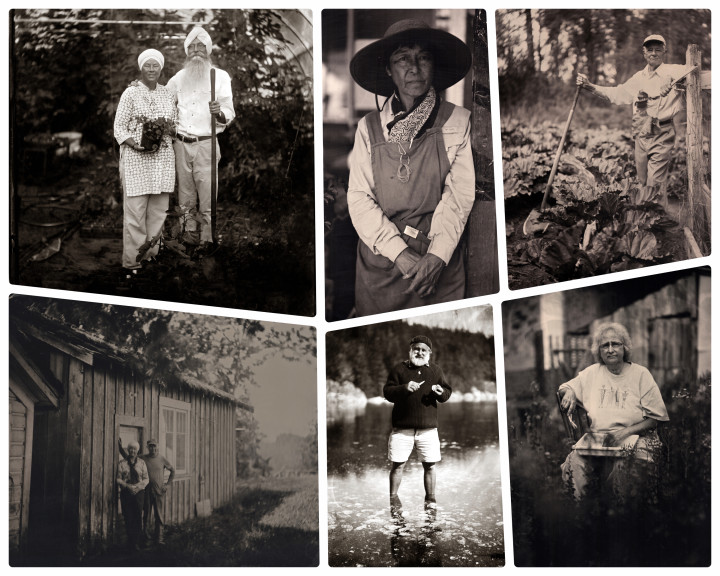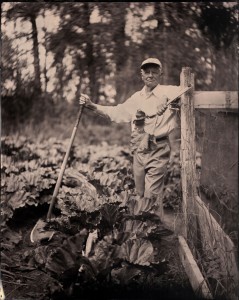Are Millennials the Only “Green” Generation?
When you think of someone who actively engages in sustainable practices do you picture an 89 year-old grandfather? If you didn’t, then you probably haven’t met Nick DeLange. DeLange, who happens to be my best friend’s grandpa, has been apart of my life since I was 10 years old. The first time I was met him, he immediately offered me his homemade apple sauce (which tastes delicious) and freshly picked raspberries from his farm. Originally born in The Netherlands, Delange has been living in Duncan on Vancouver Island for over 60 years, and has remained dedicated to growing the vast majority of food for both his family and the community.
In partnership with Service Canada’s New Horizons for Seniors Program (NHSP), the Island Farmer’s Alliance (IFA) launched a photography project in 2014 to capture the stories of senior food producers, primarily farmers and fishermen, on Vancouver Island. Nick Delange was asked to be one of the farmers featured in the project and his story will be told in the IFA’s coffee table book “Of Land & Sea: Portraits of Coastal BC Farmers, Fishers, and Harvesters” (available for purchase in Spring 2016). Ken Miner, the photographer for the project, explained that he hopes the project will educate future generations about the importance of producing food in a sustainable way.
I love that this project is shedding light on the fact that many seniors are sustainably-minded and are an important component in protecting the earth’s resources for future generations. Too often it is claimed that Millennials are the most environmentally-progressive generation. Born in the “Silent Generation” (roughly between 1925-1945), most seniors are characterized as being conservative, financially-driven conformists who lived through the Great Depression, WWII and The Cold War; they are characterized as people who “worked hard but keep quiet.” However, DeLange, along with the other food producers chosen for this project, prove that the practice of sustainability has been around for decades and even centuries. If you think about it, this is exactly what Aboriginal peoples practiced before they were assimilated into what is now a consumerist society. They lived off of the land, honoured earth’s assimilative capacity and only used what was necessary for survival. In short, I think that seniors should not be discounted as either an unconcerned or conventional customer segment that only values other product attributes, such as price, over “green” products. As DeLange has proved, many seniors are advocates for the environment and feel that they can individually make a difference (internal local of control), which simultaneously ensures that their grandchildren grow up with the resources they need to thrive.



I totally agree with this view Ali. As Tamar showed in class by sharing the story of her grandfather, I think a lot of members of the older generation practice much more sustainable behaviour than Millennials. I think the new generation like to think they are sustainable because they buy sustainable products but the truth is consumption of anything will never truly be sustainable. Seniors tend to know the value of products and reuse and fix everything they can. Consumerism today has taught us to go buy a new one as soon as there is a slight problem with the one we already have. Technology is the biggest culprit: go buy another one that is slightly better even though you already have a perfectly good one already. I think that sustainable gains can be made not only by changing the products we buy but also by changing how much we buy.
Insightful and moving, I have always thought that marketing in general overlooks the older generations as they have less lifetime value. However, time and time again we hear stories of older generations who are willing to take the extra steps, maybe because at one point they didn’t have access to some of the conveniences we have today, but regardless of the reason it’s definitely better for the planet. I see this with my Aunt and Uncle as well, they are willing to recycle just about anything and will spend months researching the perfect product that fits all their needs, not to mention they keep absolutely everything and know where it is so they can use it when the need comes up. Some memorable instances include: fixing my headlight with a strawberry carton, and willingly accepting all my styrofoam, along with that of their neighbours so they can recycle it at the special depot in the middle of nowhere suburbia. These generations are already taking steps that most of us ‘don’t have the time’ to take and perhaps it is time that sustainable marketing steps up and acknowledges that.
In this post, learning about Nick DeLange was like reading about my grandfather. I believe this generation has some key common aspects wherever they are in the world. These people have lived through tough moments in history and this has made them be really aware of what they have. They are always trying to make things last as long as they can, fixing and taking care of them. For me, this is really what sustainability is about. They are the real “Green” Generation. For Millennials, it is another concept. I see it as how, within the consumerism world that we live in, we can minimize our footprint in the planet.